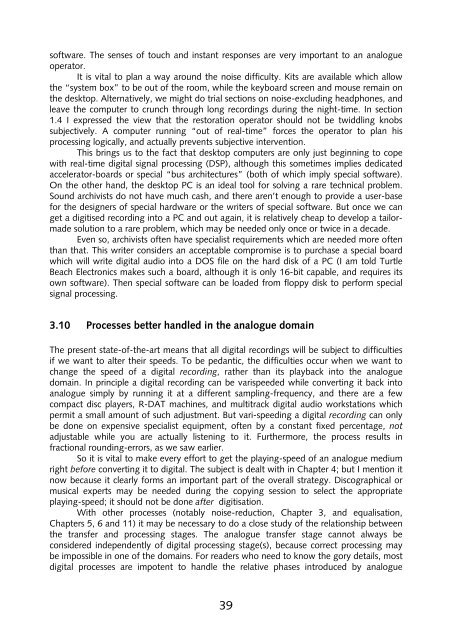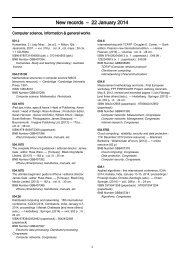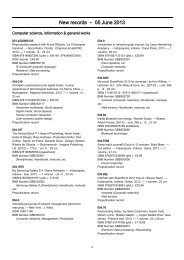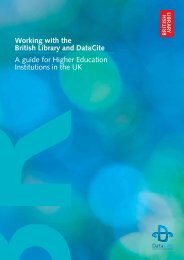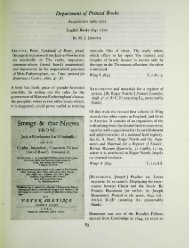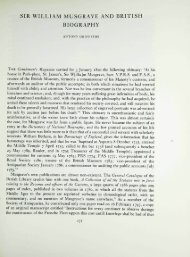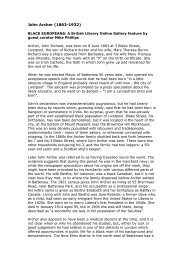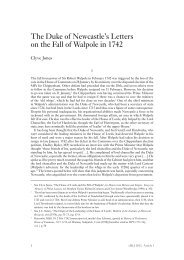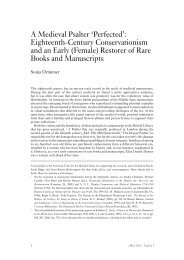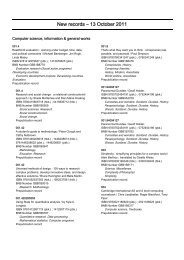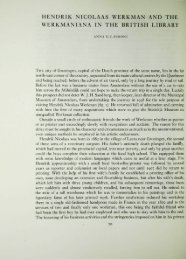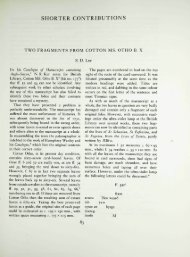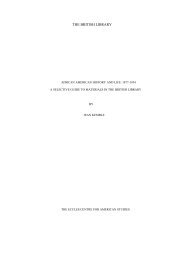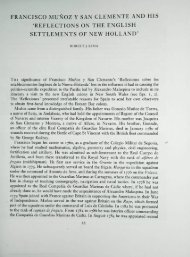MANUAL OF ANALOGUE SOUND RESTORATION ... - British Library
MANUAL OF ANALOGUE SOUND RESTORATION ... - British Library
MANUAL OF ANALOGUE SOUND RESTORATION ... - British Library
Create successful ePaper yourself
Turn your PDF publications into a flip-book with our unique Google optimized e-Paper software.
software. The senses of touch and instant responses are very important to an analogue<br />
operator.<br />
It is vital to plan a way around the noise difficulty. Kits are available which allow<br />
the “system box” to be out of the room, while the keyboard screen and mouse remain on<br />
the desktop. Alternatively, we might do trial sections on noise-excluding headphones, and<br />
leave the computer to crunch through long recordings during the night-time. In section<br />
1.4 I expressed the view that the restoration operator should not be twiddling knobs<br />
subjectively. A computer running “out of real-time” forces the operator to plan his<br />
processing logically, and actually prevents subjective intervention.<br />
This brings us to the fact that desktop computers are only just beginning to cope<br />
with real-time digital signal processing (DSP), although this sometimes implies dedicated<br />
accelerator-boards or special “bus architectures” (both of which imply special software).<br />
On the other hand, the desktop PC is an ideal tool for solving a rare technical problem.<br />
Sound archivists do not have much cash, and there aren’t enough to provide a user-base<br />
for the designers of special hardware or the writers of special software. But once we can<br />
get a digitised recording into a PC and out again, it is relatively cheap to develop a tailormade<br />
solution to a rare problem, which may be needed only once or twice in a decade.<br />
Even so, archivists often have specialist requirements which are needed more often<br />
than that. This writer considers an acceptable compromise is to purchase a special board<br />
which will write digital audio into a DOS file on the hard disk of a PC (I am told Turtle<br />
Beach Electronics makes such a board, although it is only 16-bit capable, and requires its<br />
own software). Then special software can be loaded from floppy disk to perform special<br />
signal processing.<br />
3.10 Processes better handled in the analogue domain<br />
The present state-of-the-art means that all digital recordings will be subject to difficulties<br />
if we want to alter their speeds. To be pedantic, the difficulties occur when we want to<br />
change the speed of a digital recording, rather than its playback into the analogue<br />
domain. In principle a digital recording can be varispeeded while converting it back into<br />
analogue simply by running it at a different sampling-frequency, and there are a few<br />
compact disc players, R-DAT machines, and multitrack digital audio workstations which<br />
permit a small amount of such adjustment. But vari-speeding a digital recording can only<br />
be done on expensive specialist equipment, often by a constant fixed percentage, not<br />
adjustable while you are actually listening to it. Furthermore, the process results in<br />
fractional rounding-errors, as we saw earlier.<br />
So it is vital to make every effort to get the playing-speed of an analogue medium<br />
right before converting it to digital. The subject is dealt with in Chapter 4; but I mention it<br />
now because it clearly forms an important part of the overall strategy. Discographical or<br />
musical experts may be needed during the copying session to select the appropriate<br />
playing-speed; it should not be done after digitisation.<br />
With other processes (notably noise-reduction, Chapter 3, and equalisation,<br />
Chapters 5, 6 and 11) it may be necessary to do a close study of the relationship between<br />
the transfer and processing stages. The analogue transfer stage cannot always be<br />
considered independently of digital processing stage(s), because correct processing may<br />
be impossible in one of the domains. For readers who need to know the gory details, most<br />
digital processes are impotent to handle the relative phases introduced by analogue<br />
39


